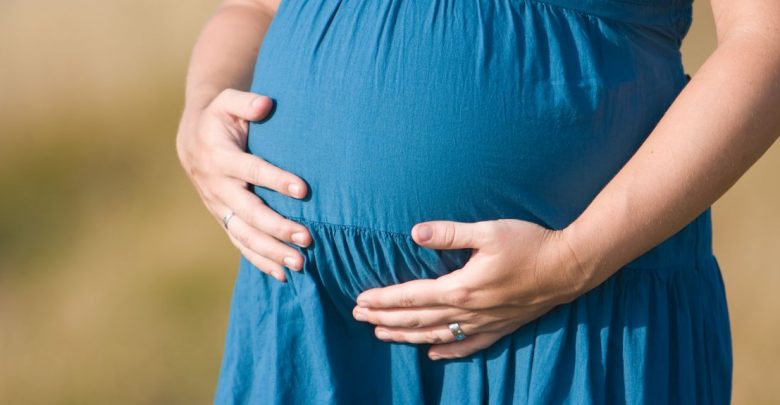
HMC advises pregnant and breast-feeding women to take precautions during Ramadan
«حمد الطبية» تنصح الحوامل والمرضعات باتخاذ الاحتياطات أثناء الصيام
Hamad Medical Corporation (HMC) is advising women who have pregnancy complications such as diabetes, high blood pressure, and anemia to take precautions if they are fasting this Ramadan.
Dr Faten El Taher, Senior Consultant in Obstetrics and Gynecology at the Women’s Wellness and Research Center, said while some studies show there is little or no effect on babies whose mothers fasted during pregnancy, other studies have found that pregnant Muslim women who fast during Ramadan are likely to have smaller babies who are more prone to learning disabilities.
“Pregnant women with underlying health conditions should avoid fasting in order to protect themselves and their unborn babies from further complications. However, pregnant women who decide to fast during Ramadan should only do so under their doctor’s supervision,” cautioned Dr El Taher.
“Each Ramadan we see an increase in the number of pregnant women who visit our Emergency Department for complains associated with fasting. If Ramadan coincides with the summer months, this means hot weather and longer days, which puts pregnant women at greater risk for dehydration due to low fluid intake. This could induce premature labour and subsequently lead to preterm births,” added Dr El Taher.
Dr El Taher said fasting pregnancy women should contact their doctor immediately if they notice signs of distress, which could include weight loss (or not gaining enough weight throughout pregnancy), extreme thirst, infrequent urination, or dark-coloured and strong-smelling urine, headache, pain, or fever, and nausea or vomiting.
She says it is also important to immediately contact one’s doctor if there are changes in the baby’s movement (particularly a decrease in movement), if the woman experiences contraction-like pains, feels dizzy, faint, weak, confused, or tired.
“If a woman, or her unborn baby, shows any signs of distress, she should immediately break her fast, drinking water containing salt and sugar, or an oral rehydration solution. She should also immediately contact her doctor,” said Dr Al Taher.
Dr Amal Abu Bakr Arbab, Lactation Consultant and Lead for the Baby-Friendly Hospital Initiative at the Women’s Wellness and Research Center, says it is important for breastfeeding women to consult their physician prior to fasting.
She said most Islamic scholars believe that breastfeeding women are exempt from fasting and urges women who are breast-feeding to seek medical advice if they decide to fast.
“For women who are able to breastfeed, breast milk provides the ideal food source for the healthy growth and development of their infant. Both the World Health Organization (WHO) and the United Nations Children’s Fund (UNICEF) recommend exclusive breastfeeding for the first six months of a baby’s life. Exclusive breastfeeding means the infant only receives breast milk without any additional food or drink,” said Dr Arbab.
نصح خبراء مؤسسة حمد الطبية، النساء ممن يعانين من مضاعفات ومصاعب الحمل مثل السكري، وارتفاع ضغط الدم أو الأنيميا، بتفادي الصيام خلال شهر رمضان المبارك، كما يفضل الخبراء عدم صيام المرضعات.
وقالت الدكتورة فاتن الطاهر استشاري أول أمراض النساء والتوليد بمركز صحة المرأة والأبحاث، محذّرة النساء الحوامل: «ينبغي على الحامل التي تعاني من حالات مرضية مزمنة تجنب الصيام، وذلك لحماية نفسها والجنين من مزيد من المضاعفات، غير أن على الحامل التي ترغب في الصيام، الحصول على نصائح وإرشادات الطبيب طيلة الشهر الكريم، وذلك للتأكد من أن الصيام لا يؤثر على الجنين».
وحسب رأي د. فاتن، فإن هناك بعض المخاوف من أن الصيام قد يؤثر على عملية نمو وتطور الجنين داخل الرحم، أو أن يؤدي الصيام إلى الولادة المبكرة، وقالت: «عادة ما تكون هنالك زيادة في تردد النساء الحوامل على قسم طوارئ النساء بسبب الصيام خلال شهر رمضان، وتفترض بعض الدراسات زيادة في ولادة الأطفال المبكرة في حالة صيام الأم خلال فترة الحمل، وإذا صادف حلول شهر رمضان في فصل الصيف، فإن ذلك سيعني جواً حاراً ونهاراً طويلاً، الأمر الذي يعرّض الحامل للجفاف بسبب قلة تناول السوائل، مما يحرّض الطلق المبكر وبالتالي الولادة المبكرة.



